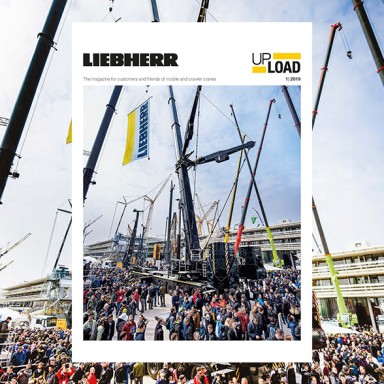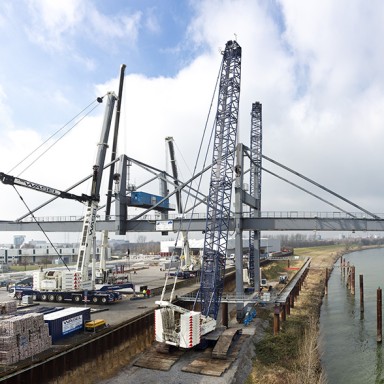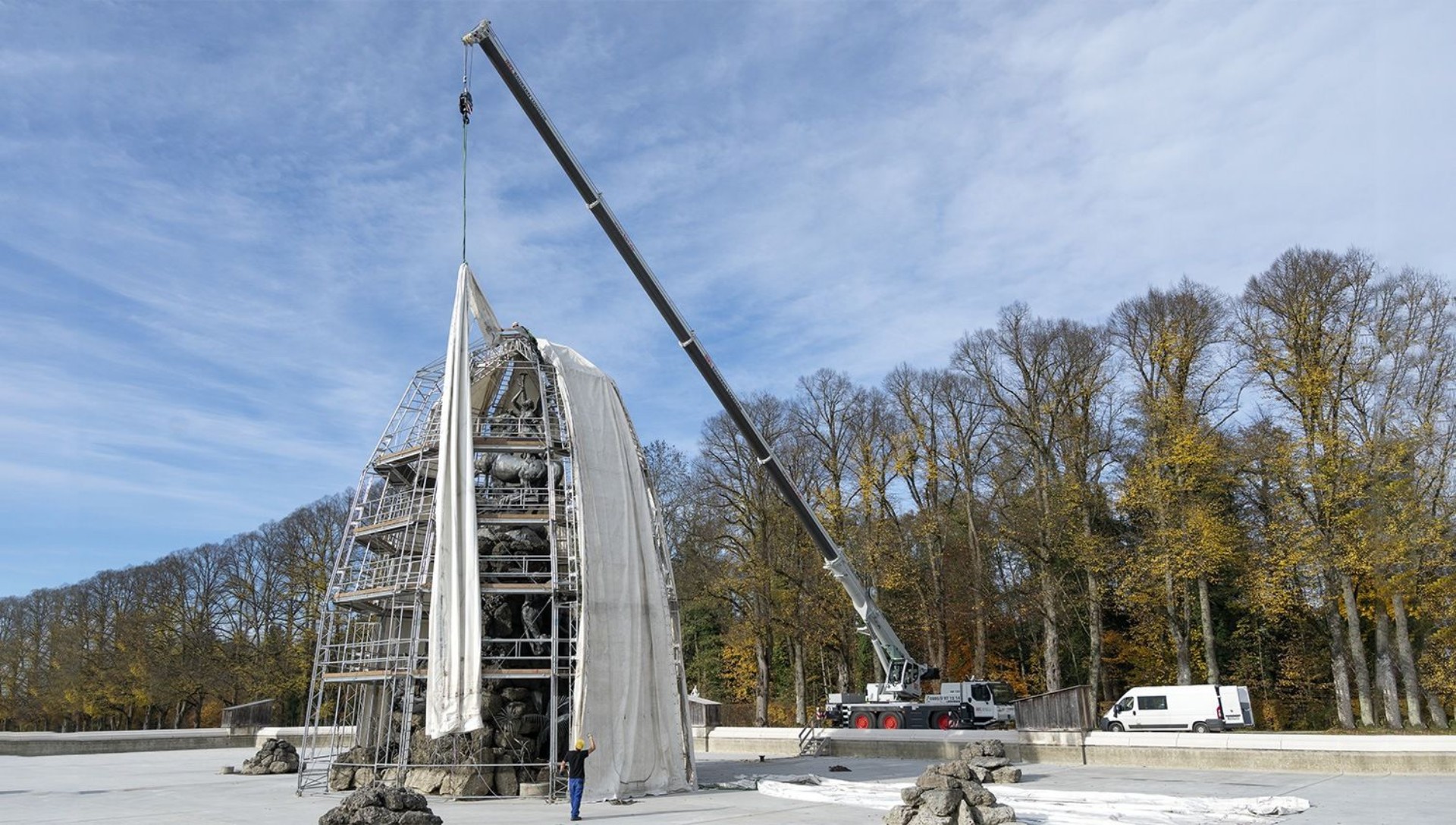
5 minutes | magazine 01/2019
A crane job between splendour and megalomania
It may surprise you to learn that there are alternatives to Neuschwanstein. If you want to find out a little more about King Ludwig II of Bavaria and his (credibly recorded) eccentricity, you could do worse than travel to an island in Chiemsee in Bavaria, where the crowds will be somewhat thinner.
Lake crossing to see the Fairytale King
Every autumn, when the hordes of tourists at Herrenchiemsee New Palace start to lessen and the quieter time is used to get to grips with the dust on the windowsills and chandeliers, the palace park outside is made ready for winter. That does not just mean clearing thousands of plants. The annual ritual also includes protecting the three enormous and quite splendid fountains in the royal gardens. To protect these stone fountains adorned with numerous figures from snow and moisture, every autumn a scaffold hood is built over them, which is then covered with tarpaulins. And every autumn, before the first night frosts, in the early morning a small mobile crane can be seen on the north bank of the largest lake in Bavaria, waiting for the ferry to take it to Herreninsel. To complete a crane job for the Fairytale King.
Last year, mobile and construction crane logistics contractor BKL, based in Forstinning near Munich sent one of its mobile cranes to the “Sea of Bavaria”, Chiemsee, around two hours drive away. As dawn broke, a Liebherr LTM 1060-3.1 mobile crane was transported over the lake on the small ferry to the island. Once there, the romantic journey continued – past idyllic paddocks and proud outbuildings. Through swirling mist and through a large section of the enormous forest, which covers the majority of the island, featuring mighty Douglas fir trees. Then the crane reached its destination – the palace of King Ludwig II of Bavaria with its extensive parkland.
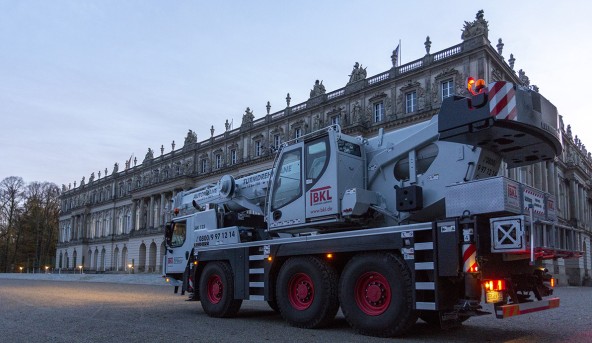
The scaffolders, with their last cups of breakfast coffee still in their hands, were waiting for “their” crane in front of the palace facade bathed in the blue of morning. They had bolted together the protective hoods, each made up of three large pre-assembled parts, over the previous few days in the palace garden. These now had to be hoisted by the crane over the enormous ornate fountains, which measure up to thirteen metres in height. The protective hoods for the two largest of the fountains are each composed of three large pre-assembled parts. The crane could only be set up for the job outside the enormous empty fountains. This meant that a significant radius of around 25 metres was required to hoist the loads, some of which weighed over two tonnes.
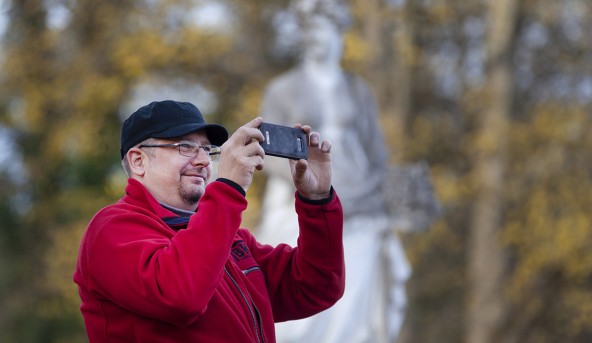
Just time for a snapshot of his crane with a royal backdrop for Dariusz Jagiello, the BKL crane operator.
Dariusz Jagiello extended the boom on his Liebherr crane to a length of 45 metres so that the roller head could reach over the centre of the fountain. With the load on the hook, the experienced crane operator proceeded with extreme caution, precisely following the instructions of the scaffolders. Centimetre precision was required in the manoeuvring to place the frames over the elements, which were already in position. They actually had to be connected to each other by the fitters whilst they were still floating in the air. As soon as a metal frame had been completed, the crane pulled long plastic tarpaulins to the apex of the scaffold dome. Covered like this to protect them from snow and rain, the palace fountains pass the winter snug and dry. Shortly before the visitor numbers to the palace and island start to increase again in spring, the winter covers are removed from the fountains (once again using a powerful crane) to unveil them in their full glory again for the annual 400,000 visitors.
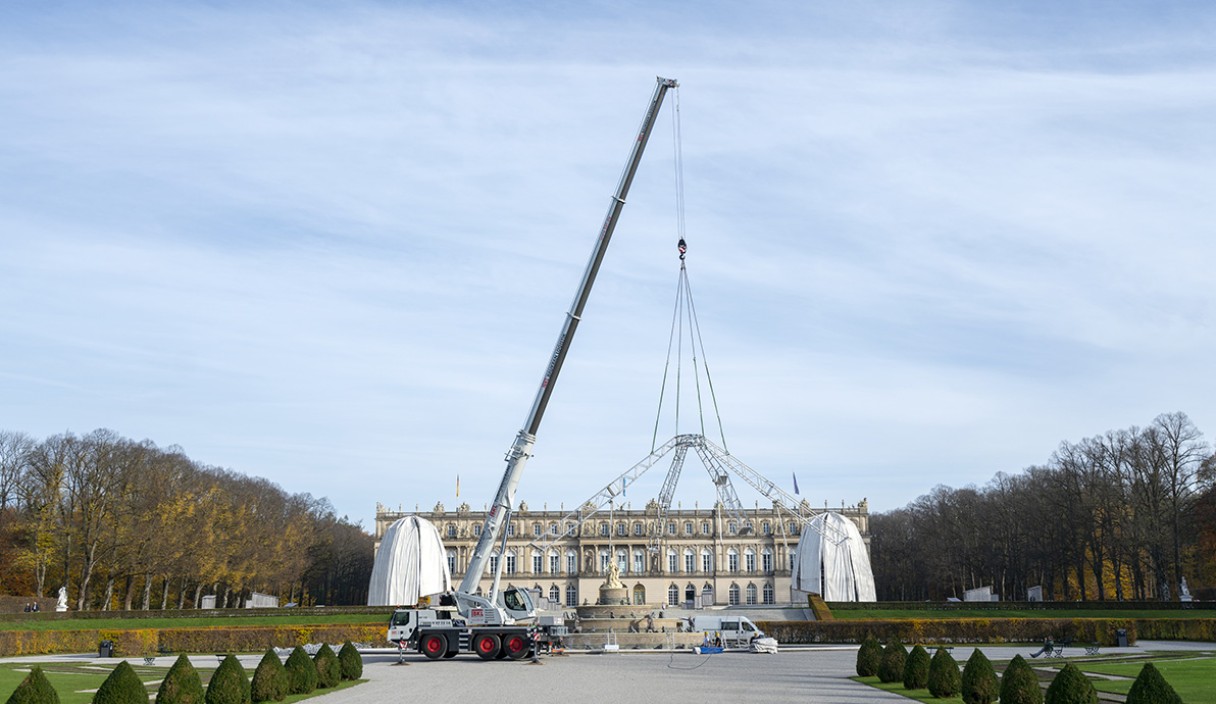
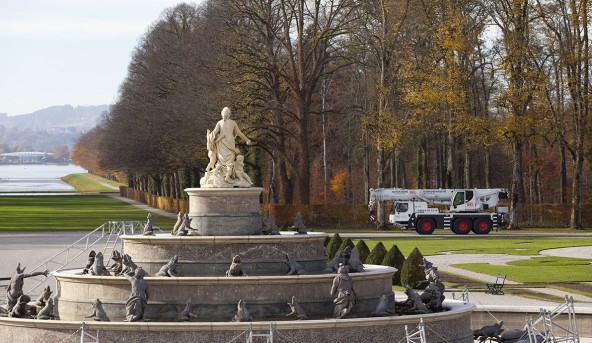
Although the fountains in the park are extremely impressive, the palace itself houses plenty of extravagant splendour, making it the focal point of any visit to Herrenchiemsee, including the imposing hall of mirrors, which is 98 metres long, the master bedroom crammed with gold and never used by Ludwig and the grand staircase, which is more than a match for the Pendant in Versailles. With so much pomp and glory, however, it should also be mentioned that although the exterior of the palace has been completed, the interior has remained unfinished. Twenty rooms in the building feature breathtaking decorations – the rest is a shell. And it has been like that for almost 140 years.
But because you, our readers, are interested in hoisting equipment, we must not forget to mention another highlight of Herrenchiemsee New Palace at this point – the so-called Magic Table. This curiosity is a dining table (gilded of course) for his Majesty which can be lowered into the room below. The unsociable monarch had this luxurious food elevator installed in his royal apartments to ensure that he could remain undisturbed whilst dining without even having to clap eyes on service personnel. Using a sophisticated hoisting mechanism, the royal table could be raised into the king’s dining room after being readied in the cellar.
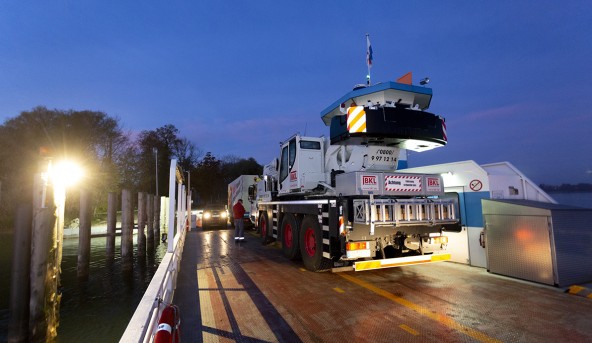
Sadly, however, crane operator Dariusz Jagiello had no time for all the beauty and splendour of the palace during his romantic trip into the Royal Bavarian past. The work to cover all the park fountains took the whole day. So instead of a tour around the halls and rooms of Herrenchiemsee New Palace, finding out more about the Fairytale King and his passion for grandeur, Jagiello had to make do with taking a snapshot of his Liebherr crane on his smartphone in front of the royal palace before the two of them were transported back to the mainland on the evening ferry. However, it is likely that not even His Royal Highness himself had enough time to enjoy the grandeur of the most expensive of all his palaces. In fact, Ludwig II only resided on the island for a total of ten days.
This article was published in the UpLoad magazine 01 | 2019.

